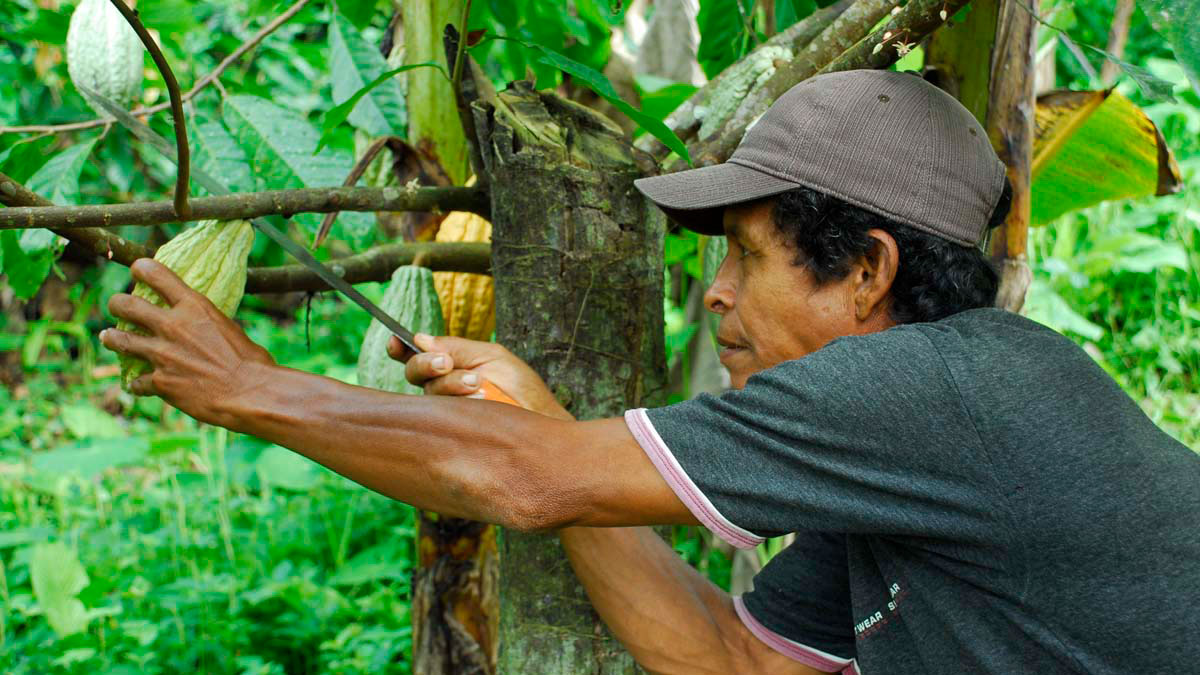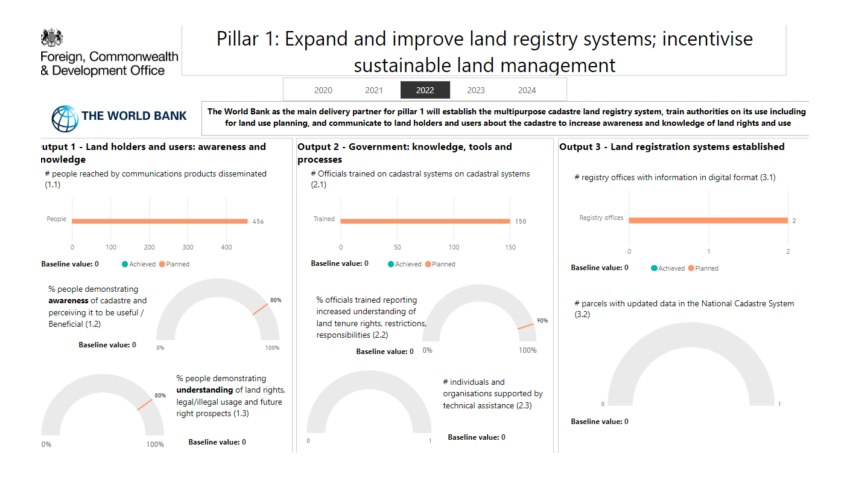
This Earth Day 2022, we’re celebrating the people and programmes that champion climate action through our work.
As evaluation partners of the UK Foreign, Commonwealth and Development Office’s (FCDO) flagship forestry programme, Territorios Forestales Sostenibles (TEFOS), we are providing fundamental support to reducing deforestation across Colombia, one of the most biodiverse countries in the world.
In this blog, our team on TEFOS, Fionn O’Sullivan, Deputy Team Leader, and Swaantje Marten, Analyst, give insights into the programme and how our work will assess and help maximise the outcomes of the programme.
To meet the world’s climate change targets, it is essential to protect our forests. They store carbon, cool the air, produce oxygen, and provide a haven of biodiversity for countless plants and animals. But forests are disappearing fast. In 2020 alone, the planet lost an area of tree cover larger than the United Kingdom, including more than 4.2 million hectares of primary tropical forests.
Tetra Tech International Development is supporting the UK’s TEFOS programme to reduce deforestation in 37 municipalities across Colombia – an important initiative to help the country meet its goal of halting deforestation by 2030. Our monitoring, evaluation services will help keep the programme on track over its five-year term, helping it to learn and adapt over time as well as assessing its overall success in a final impact evaluation.
Understanding the dynamics of deforestation
The drivers of deforestation in Colombia are complex. They include the expansion of the agricultural frontier, land speculation, illegal mining, illegal logging, coca cultivation and cattle ranching. These problems are particularly prevalent in areas which were hotspots during the country’s armed conflict. In many areas, deforestation has actually accelerated since the 2016 signing of Colombia’s peace agreement.
The state often has a weak presence in these regions, while security forces currently lack the capacity to prosecute environmental crimes that are mainly the result of organised business interests. At the same time, incentives for rural communities to use land in a sustainable way – rather than moving onto newly deforested land – are weakened because they often do not have legal titles that would allow long-term investments.
Protecting forests through land ownership
TEFOS addresses these drivers through a three-pillared approach. Under the first pillar, the programme is supporting the roll-out of a land registry system to deforestation hotspots, with the aim of strengthening land holders’ rights and improving the ability of authorities to take environmental considerations into account in land use planning. Under the second pillar, it is providing tools and training to local and national authorities to tackle environmental crime more effectively. The third pillar will help communities in deforestation areas to develop more sustainable livelihoods, reducing the incentive to clear more forest.
Partner for a sustainable future
As monitoring, evaluation and learning partner for TEFOS, Tetra Tech has an important role to play throughout the programme’s delivery. Our initial work on its theory of change has already identified several key aspects for the programme’s success, including the need to deliver the three pillars in a mutually supportive way. We have also produced an evidence review to help identify different options for promoting more sustainable livelihoods under the third pillar, with a plan to protect forests where they are intact and support populations in affected areas to prevent deforestation elsewhere.

As TEFOS progresses, we will accompany it on its journey through annual reviews, data analysis, bespoke research and maintaining a results dashboard – and will help programme managers to keep TEFOS on track. Once the programme is completed, we will then produce a full impact evaluation, drawing on case studies from seven of the programme municipalities to understand in detail how successful TEFOS has been.
With a strong and growing portfolio of climate and environment programmes, the insights and lessons learned from TEFOS will be invaluable to protecting forests in Colombia. This will help us inform future climate projects and allow us to strengthen our expertise in providing our clients with clear-cut solutions to taking efficient climate action – on Earth Day and beyond.